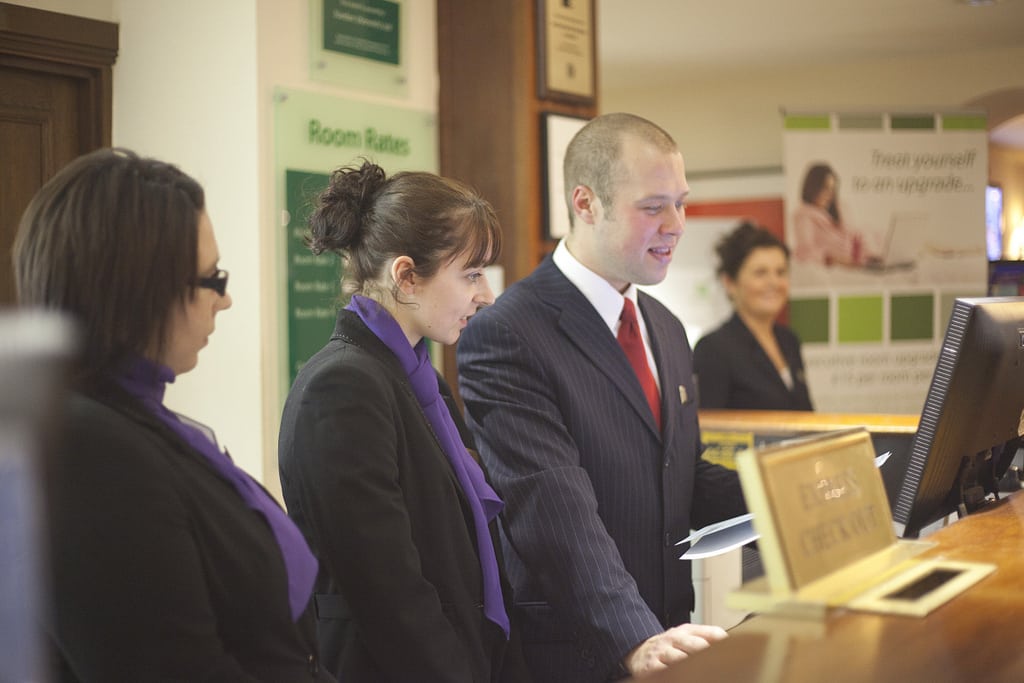What Hotels Are Looking for in a Good College Intern

Skift Take
Hotels large and small welcome interns year-round to learn about the guest experience and what it takes to run the behind-the-scenes operations at a property.
But hiring managers want employees who can connect with guests, sometimes acting as city ambassadors, besides having the skill sets to coordinate room service and check-in.
Interns' eagerness to learn as much as possible and their desires to build their resumes are valued by hoteliers, provided they have the interpersonal skills to back up their top marks.
Hilton Worldwide offers corporate, property, and revenue management internships, letting interns work in a specific environment within a hotel company to focus their experiences.
"The biggest change in what we are looking for today are critical-thinking business skills, said Kimo Kippen, Hilton's chief learning officer. "Candidates can’t just be book smart, interpersonal skills are also keys to success."
“Many people are very enamored by the idea of an internship and we see a tremendous desire for more in-the-moment coaching and continuous feedback. Employees are looking for a more meaningful challenge more than ever before, and in today’s business environment, you have to earn all your stripes to be promoted."
This means entering the industry with two or three summer internships doesn't necessarily put an employee on the fast track to management, but intern training can help determine what aspect of the hotel operation students feel best suited for.
"When I was recently with a group of 65 of our general managers, I asked how many started as hourly employees, and most hands went up," said Kippen. "The combination of property-level experience and better business acumen is key to running great hotels.”
The Boutique Internship
The intern experience becomes even more targeted, while at the same time growing more holistic, when looking at boutique and luxury properties. Students often take on more responsibility and get a wider view of hotel operations because of a boutique or luxury property's smaller size, or the fact that it might be independent.
“When you intern at a smaller property, you get much more attention from management," said Felipe Espinoza, head of the Americas for Grace Hotels, a boutique company with properties on five continents. "They’ll be working hands-on to develop specific projects. Interning at smaller properties also allows more contact with guests, greater responsibility, and delivering on tasks they’ve been committed to."
"Interacting with guests is real and meaningful with our interns, and they’re part of the team. I’m not saying the larger hotels won't do this, but certainly the attention we grant them is very rewarding.”
The questions interns might ask often don't have answers limited to a single property or even U.S. properties. They're inquisitive about the bigger picture and how their position fits in with the global industry.
“Students are always keen to learn the philosophy behind our success," said Espinoza. "They ask ‘what are the guests looking for in different parts of the world?’"
Mission Point Resort on Mackinac Island, Michigan also tries giving students a broader view of the industry, but still hears the age-old questions.
“Our interns tend to ask specific task-related questions, very specific to what they’re doing," said Bradley McCallum, the resort's general manager. "With the U.S. system, outside of two internships that last for three months, students have very limited exposure to what life is like on the ground, without a great understanding of how hotels work. Whereas in Germany, for example, before you even start academic hotel training, you need to have three years of an apprenticeship and training under your belt."
Grace Hotels' intern program is run by the Libra Group, which owns Grace. The program matches each intern with a mentor, a senior executive at the property they're based at, and a buddy, a junior employee who can more easily level with interns and answer questions they might not feel comfortable asking management.
"The interns we place at hotels are a very specific type of person, someone who wants to serve the guests," said Siobhan Owens, educational programs officer for Libra. "We often find people who never thought they would like working in hotels."
Mission Point also pairs interns with mentors, in addition to having an intern council made up of managers at the property, many of whom were Mission Point interns.
Whether choosing to intern at a large hotel chain or small boutique property, the training students walk away with depends on what ideas and pro-activeness they bring to the hotels, and how assertive they're willing to be.





